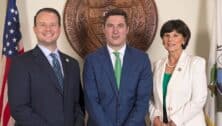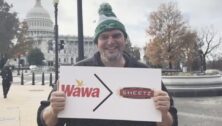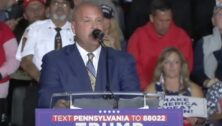Chester County Leadership: Representative Harry Lewis
On the eve of his 75th birthday, VISTA Today asked Representative Harry Lewis about growing up the oldest of eleven children in a segregated Coatesville, “attending” Lukens Steel college of hard knocks for three weeks before his high school coach helped him get into Winston Salem State College, traveling to the south and seeing “Whites Only” signs for the first time, being lectured by Dr. Martin Luther King to refrain from violence even when provoked and returning to Coatesville and serving as a Phys-ed teacher and track coach for over 30 years where he compiled a record 174 wins to just 17 losses.
Where were you born Representative Lewis?
I was born in Queens, New York on February 20th, 1941. I was the oldest and the only one of my ten brothers and sisters not born in Coatesville. My mother, who is from North Carolina, met my father, who is from South Carolina, there in Queens. They met, got married, and I came along.
How did your family get to Coatesville?
Because of the job opportunities, my parents moved to Coatesville when I was three-years-old. My dad got a job at Lukens Steel Company, and the three of us moved into a house in South Coatesville in what they call The Spruces. We lived outside of town because there were not a lot of houses for minorities coming into Coatesville at that time. Shortly after moving into the Spruces, my brother Glen was born.
Did you stay in South Coatesville?
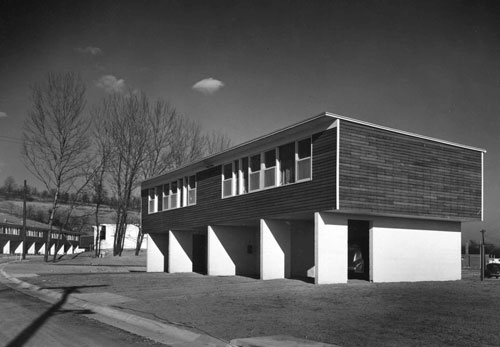
No. After a while, my family moved to Caln Township (although the address there is Coatesville) into a house in Carver Court on Foundry Street designed by Louis Kahn, the famous architect. Kahn had met with Coatesville city fathers as well as some of the black leaders including Dr. Whitaker C. Atkinson, T. J. Anderson, and Dr. Stokes and worked to design the homes for blacks who were defense workers.
It was one of the first black communities in the Coatesville area with indoor plumbing. The reason I am so familiar with the history of the homes is I helped Jane Kennedy, a current resident of Carver Court, with the research of the history of the homes in the hopes they will be placed on the National Historical Registry in the near future.
What memories do you have of growing up in Coatesville?
Because of Lukens Steel, Coatesville was a thriving community with two movie theaters. Except for the high school, Coatesville was a segregated community. I went to James Adams, an all-black elementary school on Merchant Street before heading to Scott High School.
What impact did segregation have on you as a child, Harry?
Back in those days, segregation was what it was; we didn’t really think about it. We saw it as a matter of surviving. We had our own doctors, our own drug store, our own business district along Seventh Avenue and our own clubs. We didn’t think about segregation then as we do now. We had strong family units, and we took care of our own. When everyone came together at the high school level everyone somehow just got along!
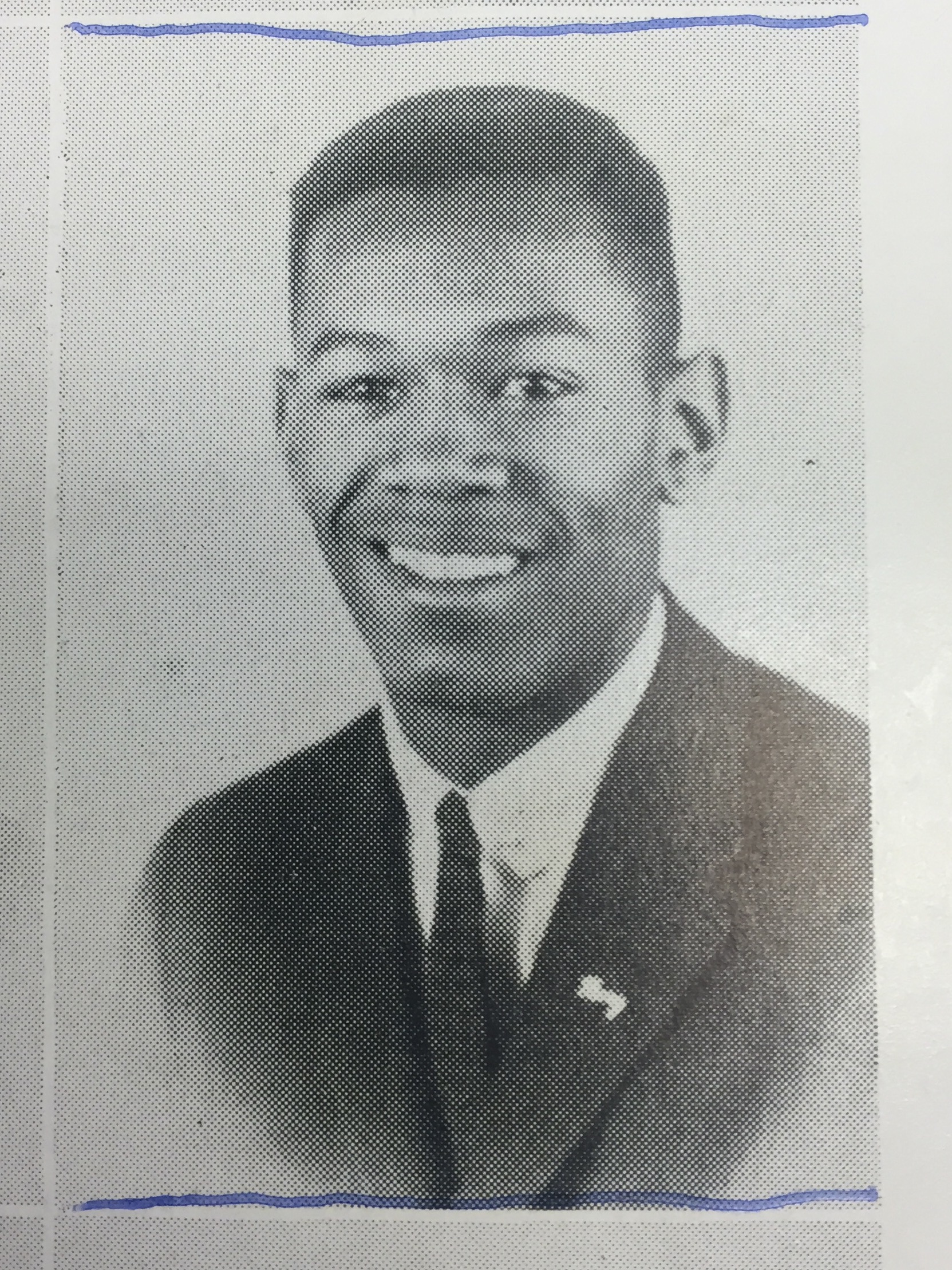
Was there a leader of Coatesville’s black community who you looked up to?
That would be Whitaker C. Atkinson, who I mentioned earlier. Dr. Atkinson was one of the first black physicians in Coatesville. He tried to work at the old Coatesville Hospital on the site of where Harrison House is now, but they wouldn’t let him in. So he built his own hospital which he named after himself and was the only black hospital in this entire area.
He was not only the family physician for all the black families in Coatesville, but was instrumental in bringing other black doctors into the area. All ten of my brothers and sisters were born, and my mother passed away at age 56 in Dr. Atkinson’s hospital.
Your father continued to work for Lukens Steel?
80 percent of the fathers in our community worked at Lukens. In our family, my brothers and sister just kept coming, but we never went hungry, and we always had food on the table. Back then, Lukens took care of its employees through its company store. The company store was like a supermarket, and they had the best cuts of meat and a lot of everything. Anything we needed, we got at the company store. That’s how we survived.
What sports did you play in high school?
I played running back on what was a very good football team. I also ran the hurdles, quarter-mile and was a part-time half-miler on the track team. My sophomore year was Ross Kershey’s first year as a teacher. Mr. Kershey was my American History teacher and I was on his very first JV Basketball team. Track and field became my Forte. My running skills earned me a full scholarship at Winston-Salem State University, and I’m still involved in the sport today!
When did Coatesville start to integrate the teaching staff?
When I was in high school, the administration started integrating the high school, one or two teachers at a time. Mrs. Anderson, who was a teacher at the James Adams School, and Mr. Percy Lewis, who was a guidance counselor, were the first two black teachers who taught at the high school.
You mentioned getting a full Scholarship at Winston-Salem State University. Did you look at any other schools?
The only other school I looked at was “Lukens Steel College!” I wanted to go to college, but back then it wasn’t really an option for a young man like me. Black students were not encouraged to go to college. Instead, we were encouraged to go to work in Lukens after we graduated from high school.
I worked at Lukens for three weeks after high school, and I hated it! One day my track coach Pop Ransom, saw me on the street and asked me why I wasn’t in school and told me I could do better. He made a couple of phone calls to his connections, and before I knew what had happened, I was enrolled at Winston-Salem State. I never looked back. That conversation changed my life!
Did Winston-Salem turn out to be a good choice for you?
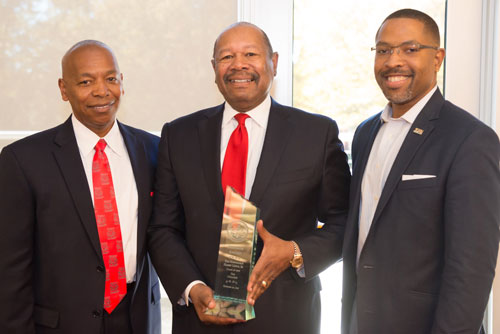
It was! It was one of the best things personally, socially, educationally and athletically that ever happened in my life. I met so many great people, friends that I’m still in touch with today.
What was it like leaving Coatesville for the first time and going to school away from home?
In my freshman year, my parents took me down to 30th Street Station in Philadelphia and put me on a train to North Carolina. That first train from Philadelphia went all the way to Richmond, Virginia where we switched trains.
In Richmond, I saw my first “Colored Only” and “White Only” signs and all the black people had their own train car. Going to the South for the first time was quite an experience for a young high school kid like me.
What did you learn from that experience, Harry?
There wasn’t anything I could do about it. I learned to observe what I was surrounded by, and to understand my environment and not to jump out and try to be influential about something I didn’t know anything about. I gauged my surroundings and dealt with them as they were, and then worked with it.
When did you start to see a change in how blacks were treated Harry?
In 1960, I was indirectly involved in the sit-in at the Woolworth lunch counter in Greensboro. Kappa Alpha Psi, my fraternity at Winston-Salem, was asked to transport the protesters back from Greensboro. My fraternity brothers who were big, strong athletes, were tired of being nice and of turning the other cheek and wanted to mix it up a bit in Greensboro.
Dr. King heard about them wanting to take action and came and talked to nine of us at our fraternity house. He told us why taking matters into our own hands was the wrong thing to do. His explanation turned me and my fraternity brothers around.
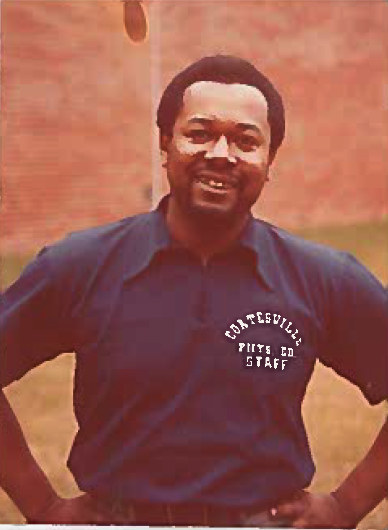
What kind of music were you listening to at the time Harry?
I was a Jazz fanatic back then, and I still am today! I listened to Charlie Byrd and all of those guys. It was soothing music and a common denominator for many of the athletes on my track team.
Tell me about your track team at Winston-Salem. How good were you?
At one point in 1960 or 1961, we had three world-record holders on our team. We beat up on teams so bad and were shunned and ignored as a result. We beat one team in Virginia, which I won’t name, so badly in a triangular meet; they didn’t even mention our college in the newspapers the next day. Even though we won almost every event, the college or their hometown newspaper refused to mention our victory.
A week later, one of my classmates at Coatesville, who was a member of that University’s track team, wrote me a letter apologizing for his school’s bigotry.
How did you get back to Coatesville after graduating from college?
After I had graduated from Winston-Salem, I went to New York City and worked as a social worker. After a year, I came back to Coatesville and got a job with the Chester County Intermediate Unit. The next year an opportunity to teach Phys-ed opened up at Coatesville High School, and I was hired. Ross Kershey was still the track coach, and he offered me the ninth grade track team coaching position. When Ross retired in 1974, I took over as coach of Coatesville High School’s track team, a position I held for 30 years.
What challenges do you see in the New Year Harry?
In my position as State Rep, I am doing what I have always done, taking advantage of the opportunities that are presented to me. I still carry the advice Dr. King gave us with me today. All I want to do is help people and be a leader. Being a State Rep enhances my ability to help the City of Coatesville as well as the surrounding areas.
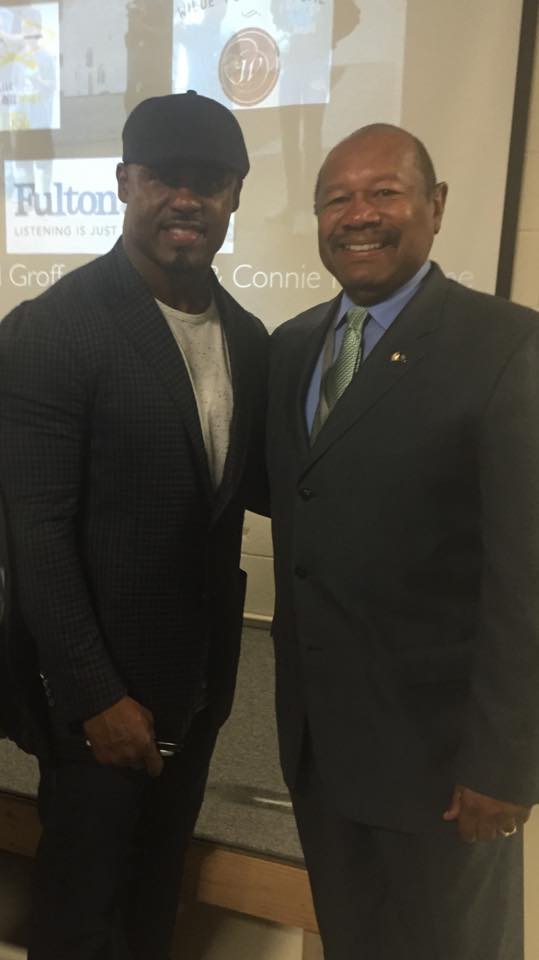
I am very invested in my hometown. I grew up here, I taught here, and I coached here. Today, I have scholarships named after me that are meant to help young people go to college. Currently, I have fourteen young people in school right now whose college tuition is guaranteed as long as they maintain their grades. We’ve had a lot of tragic things happen in Coatesville, and we keep stumbling over ourselves.
But we have a lot of positive things going on right now and a lot of people including Coatesville City Council, the Coatesville Redevelopment Authority, the County Commissioners, the Brandywine Health Foundation, and the Churches who are all working hard to turn Coatesville around.
I want to be a part of that rejuvenation!
Finally Harry, what is the best piece of advice you ever received?
My mother was the heart and soul of our family. My father worked hard, but it was my mother who kept everything straight. She saw what was happening with me and told me I had to be an example to my brothers. She encouraged me to keep moving forward and always think positively. It’s hard to get me upset, and I try to look at both sides of every issue all the time. I have my moments to be sure. But her words have always resonated with me.
Connect With Your Community
Subscribe to stay informed!
"*" indicates required fields














































![95000-1023_ACJ_BannerAd[1]](https://vista.today/wp-content/uploads/2023/03/95000-1023_ACJ_BannerAd1.jpg)



